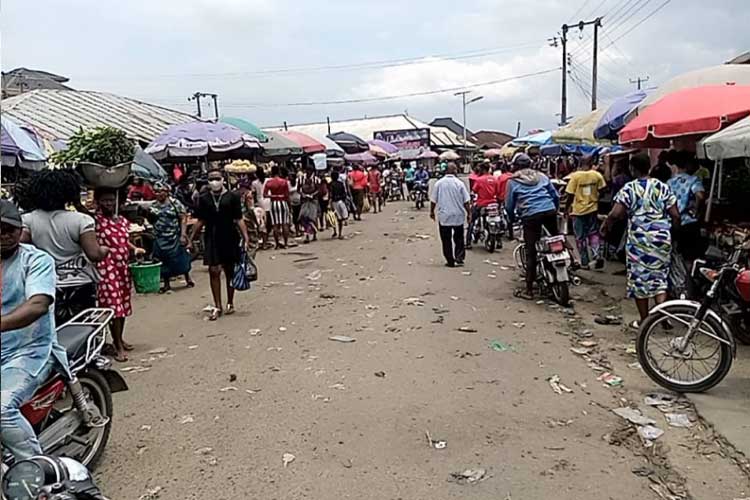
For almost the entire month of April, Akwa Ibom State was on a lockdown imposed by the State Government as a way of checkmating the spread of coronavirus, following the announcement of its first confirmed case on April 1, 2020. The lockdown which commenced on April 2, 2020 lasted till the end of the month, within which period, over 1,000 persons were arrested for violating the stay-at-home order and taken to a Magistrate Court within their senatorial district for trial. But it soon became clear to the public, that the government’s lockdown order was not achieving the ultimate objective of keeping people alive and preventing death, as many poor people became exposed to imminent death from acute hunger, with the continued shutdown of the State’s economy. This made very many people agitated and their apathy towards the fight against the pandemic grew as the lockdown progressed.
The CSO Situation Room observed that not enough mechanisms were put in place by the government to make the lockdown effective in curbing the spread of coronavirus in the State. The palliatives distributed to some families were grossly inadequate, and many people had to breach the lockdown to seek for food for their families. The people were not given enough time to prepare for a lockdown before it commenced, and public sensitisation was poor; many people did not know what the lockdown was meant to achieve. The Situation Room, having monitored the situation in different communities across the State, observed evidently that the State Government did not adequately balance the interest of enforcing a lockdown to curb the pandemic, with the social interest of the people. The enforcement brought sudden pain to the people in the form of economic losses, hunger and poor welfare. Several persons who could not work from home lost their jobs, and many had no access to buy food, medicine and other essentials.
Hence, immediately the lockdown was lifted, people were seen moving about in public places without observing the stipulated public safety guidelines. Only a handful of people wore face masks. The majority neither wore face masks, nor did they bother to make efforts at practising physical distancing.
The State Governor, Emmanuel Udom, while relaxing the lockdown, announced some guidelines which he directed the people to comply with in order to curb the spread of the virus in the State. Amongst the guidelines set down, was a directive that markets will only be open on Mondays, Wednesdays and Saturdays between 10am to 4:00pm, and everyone must mandatorily put on face masks in public and observe social distancing.
However, the Governor’s directives have been majorly flouted as a good number of people are seen in public without face masks and no form of social distancing observed. Roadside markets which are usually crowded, operate on a daily basis despite the directive of the Governor restricting the operations of all markets to particular days. Commuters are also seen crowded in vehicles all day long.
The security situation in Akwa Ibom State has also worsened as a result of the COVID-19 emergency. During the lockdown and for some days following the easing of the lockdown, the rate of burglary and armed robbery escalated. There were reports of robberies in several houses and business centres within the State. The CSO Situation Room was informed of a case of armed robbery in the State, where a petty trader was robbed and beaten by three armed men who attacked her kiosk around 7:00am and stole her wares. A member of the CSO Situation Room also had an encounter with men of the underworld; his goat farm was robbed and one of his staff got injured during the robbery attack. As a result of the numerous robberies, several communities across the State have taken the matter of security into their hands and rallied themselves to form local vigilante groups to keep watch at night.
Akwa Ibom State currently has a total of 17 confirmed COVID-19 cases ( as at May 14, 2020). Having re-opened the economy, it is recommended that the State Government must now aggressively embark on a massive sensitisation exercise, to be conducted continuously across the State via different means of communication, in order to ensure the people are carried along and secure their cooperation in the fight against the spread of coronavirus. The government needs to increase its contact-tracing of all persons who may have come in contact with any of the confirmed cases.
The CSO Situation Room further recommends that more tests should be conducted promptly and all suspected cases ought to be isolated for the stipulated 14 days or pending the outcome of their test result. The government must also not rest on its oars in ensuring that people understand and comply with all public safety rules, personal/respiratory hygiene guidelines and social distancing measures.
